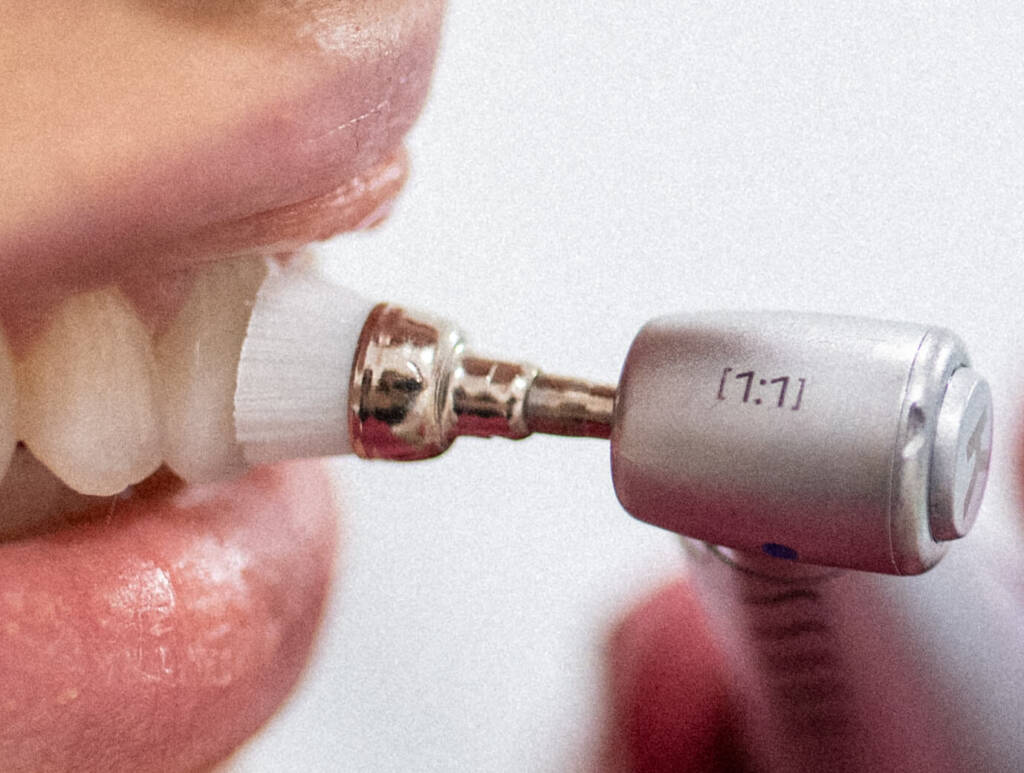Periodontitis, also known as periodontal disease, is a serious condition that affects the gums and supporting tissues of the teeth. Without proper treatment, it can lead to tooth loss. Early recognition of symptoms is crucial for successful treatment and prevention of further complications. In this article, we will discuss how to recognize the symptoms of periodontitis and what actions to take if you notice them.
How to Recognize Symptoms of Periodontitis?
Bleeding gums
One of the first signs of periodontitis is bleeding gums. If you notice blood while brushing or flossing, it could indicate gum inflammation. Healthy gums do not bleed, so any bleeding is a reason to visit your dentist.
Swollen gums
Swelling or redness of the gums can also be a symptom of periodontitis. Inflamed gums may be painful to touch and sensitive. Swelling can cause discomfort and make everyday activities like chewing food difficult.
Receding gums
Receding gums occur when gum tissue pulls away from the tooth surface, exposing the roots. This condition can make teeth more sensitive to cold, heat, and other stimuli.
Bad breath
Chronic bad breath, known as halitosis, can be a symptom of periodontitis. The bacteria that cause periodontal disease produce unpleasant odors, resulting in persistent bad breath even with regular oral hygiene.
Loose teeth
If your teeth feel loose or move when touched, it is a serious sign of advanced periodontitis. The loss of supporting tissue can cause tooth instability, potentially leading to tooth loss.
What Causes Periodontitis?
Periodontitis is caused by the buildup of plaque, a sticky bacterial film that forms on teeth. If not removed through regular brushing and flossing, plaque can harden into tartar, which cannot be removed by regular brushing. Tartar can irritate the gums and cause inflammation.
Contributing Factors
- Smoking: Increases the risk of periodontitis significantly.
- Genetics: A family history of periodontitis can increase your risk.
- Diabetes: Individuals with diabetes have an increased risk due to a weakened ability to fight infections.
- Hormonal Changes: Changes during pregnancy, menstruation, and menopause can increase gum sensitivity.
Prevention Measures
Oral Hygiene Preventing periodontitis involves regular and thorough oral hygiene. Brush your teeth at least twice a day with fluoride toothpaste and use dental floss daily. Using antibacterial mouthwash can also be beneficial.
Regular Check-ups Visit your dentist regularly, at least twice a year, for professional cleaning and check-ups. Regular visits allow for early detection and treatment of periodontitis before more serious symptoms develop.
Healthy Habits Avoid smoking and maintain a healthy diet rich in vitamins and minerals. A balanced diet can help maintain healthy gums and overall oral health.

Is Periodontitis Curable?
Periodontitis is a chronic gum disease that can cause severe damage to the supporting tissues and bones that hold the teeth. The cure for periodontitis depends on the stage of the disease at the time of diagnosis and the speed of appropriate treatment.
Early Stages
In the early stages of periodontitis, known as gingivitis, the condition is completely curable. Gingivitis manifests as gum inflammation without permanent tissue or bone damage. At this stage, proper oral hygiene, including regular brushing, flossing, and professional cleaning by a dentist, can completely eliminate symptoms and prevent disease progression.
Advanced Stages
If periodontitis is not treated in its early stages, it can progress to more severe forms that involve bone and supporting tissue damage. At this stage, while it is not possible to completely “cure” periodontitis by restoring tissue to its original state, it is possible to control the disease and prevent further damage.
Treatment of Periodontitis
Deep Cleaning: Scaling and root planing are procedures that remove plaque and tartar below the gum line and smooth the root surface to promote healing.
Antibiotics: Antibiotics may be needed to control bacterial infection.
Surgical Procedures: In severe cases, surgical methods such as tissue grafts or regenerative procedures may be required to repair damaged areas.
It is important to note that, although advanced periodontitis is not completely curable, it can be successfully controlled. Regular dental check-ups, thorough oral hygiene, and following the recommendations of experts from Esthea Polyclinic can significantly reduce symptoms and prevent further complications.
Timely Response is Crucial!
Periodontitis is a serious condition requiring timely and continuous care. In the early stages, complete cure is possible, while in more advanced stages, the disease can be controlled to prevent further damage. Esthea Polyclinic is available for comprehensive care and treatment, ensuring the best possible care for the health of your gums and teeth.


